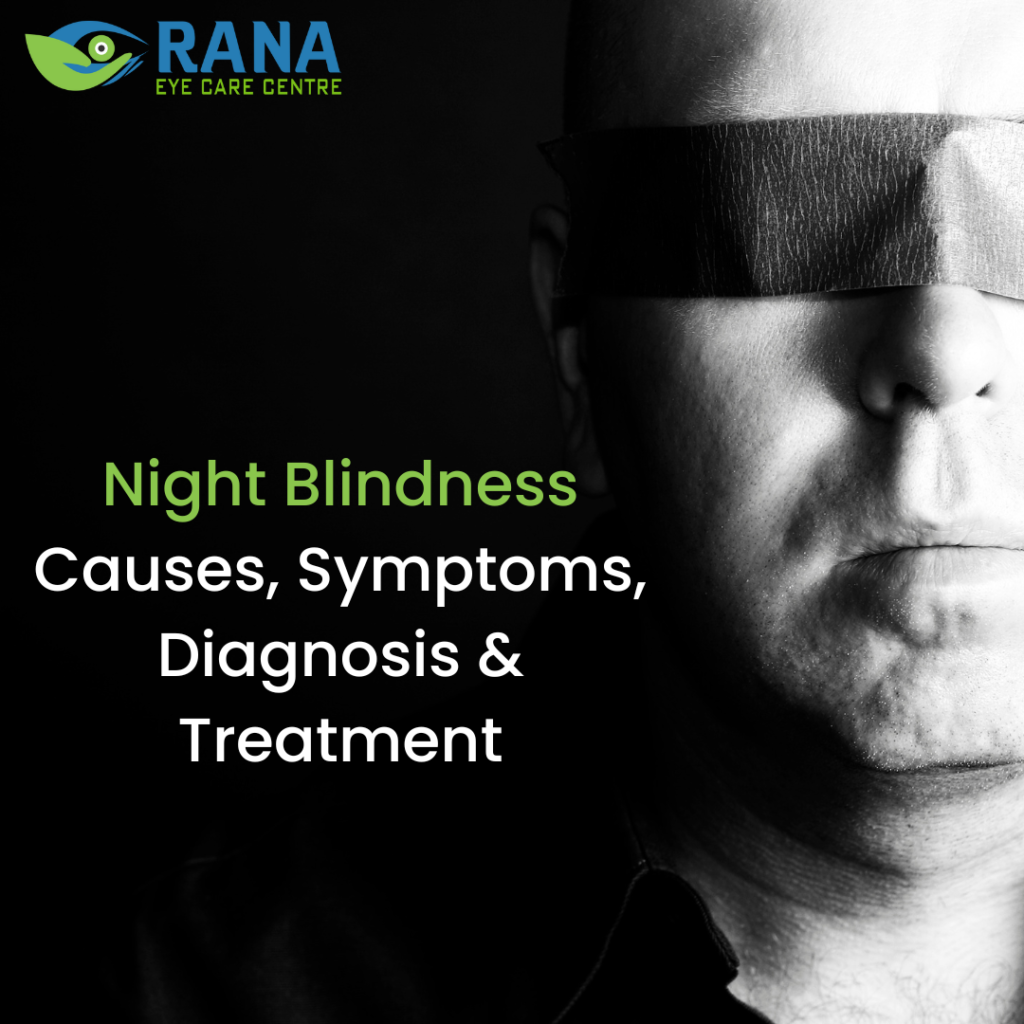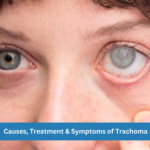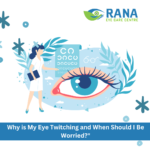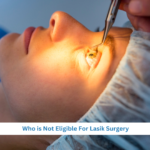Night Blindness – Causes, Symptoms, Diagnosis & Treatment
The inability to see well at night or in dim lighting is known medically as nyctalopia or “night blindness.” Night blindness is qualitatively distinct from simple blindness. Vitamin A insufficiency causes night blindness, which can be treated and avoided.
Which, if any, of the following causes night blindness, and how much?
- Many factors can contribute to night blindness.
- Myopia (nearsightedness) (nearsightedness).
- Meds for glaucoma that make the pupils smaller.
- Eye disease is known as retinitis pigmentosa.
- Deficiency of vitamin A, especially after intestinal bypass surgery.
What are the Night Blindness Signs and Symptoms?
Children and the elderly are equally at risk for developing night blindness. Therefore, it is crucial to recognise the condition’s early warning signs and seek treatment without delay. The most common symptoms include:
- Difficulty seeing in low light.
- A prolonged adjustment period from bright to dim.
- Tunnel vision (loss of peripheral field of sight).
Understanding How to Identify Night Blindness.
Depending on what triggered the night blindness, some cases can be treated, and others cannot. Patients should see an ophthalmologist or other eye professional to get an accurate diagnosis without delay.
History:
The patient will be questioned about their vision difficulties, including severity, start date, length, diet, eye surgery history, and more. A child’s frequent falls or gloomy terror may be signs.
Vision Test:
- Night blindness requires an eye exam. Eye exams include:
- Colour, depth, and eyesight are assessed here.
- They check for eyeglasses.
- Check the conjunctiva, cornea, eyelids, iris, lens, and sclera with a slit lamp.
- Ophthalmoscopic retina, vitreous, optic nerve, and retinal detachment examination to detect trauma.
A Variety of Other Exams
- The doctor may also request an Electroretinogram, which evaluates the reactivity of the rods and cones to light.
- Some doctors will order a visual field test to rule out more serious conditions like glaucoma or a stroke.
What Methods Exist for Dealing with Night Vision Impairment?
- Night blindness (nyctalopia) treatment depends on the cause. Depending on the cause, treatment ranges from new glasses to surgery.
- Myopia and low-light exposure can cause night blindness. New glasses can fix this.
- To ensure your prescription is accurate, check your eyes annually if you wear glasses or contacts.
- Diabetics must monitor their blood sugar and take their medicine. It may help night-blind people.
- If you think vitamin A deficiency is causing your night blindness, eating more of it may help. Vitamin A tablets & Injections are available.
- Foods include vitamin A and beta-carotene.
- Medication and surgery treat cataracts and glaucoma. Night blindness is treatable.
- Retinitis pigmentosa, a hereditary disease that causes near blindness, has no treatment.
- Contact an eye doctor if you have problems seeing in low light or driving at night.
Conclusion
Night blindness impairs night vision. This illness may have a cause. Consult a Rana Eye Hospital specialist before starting treatment. Night blindness can be prevented in many ways.






No Comments